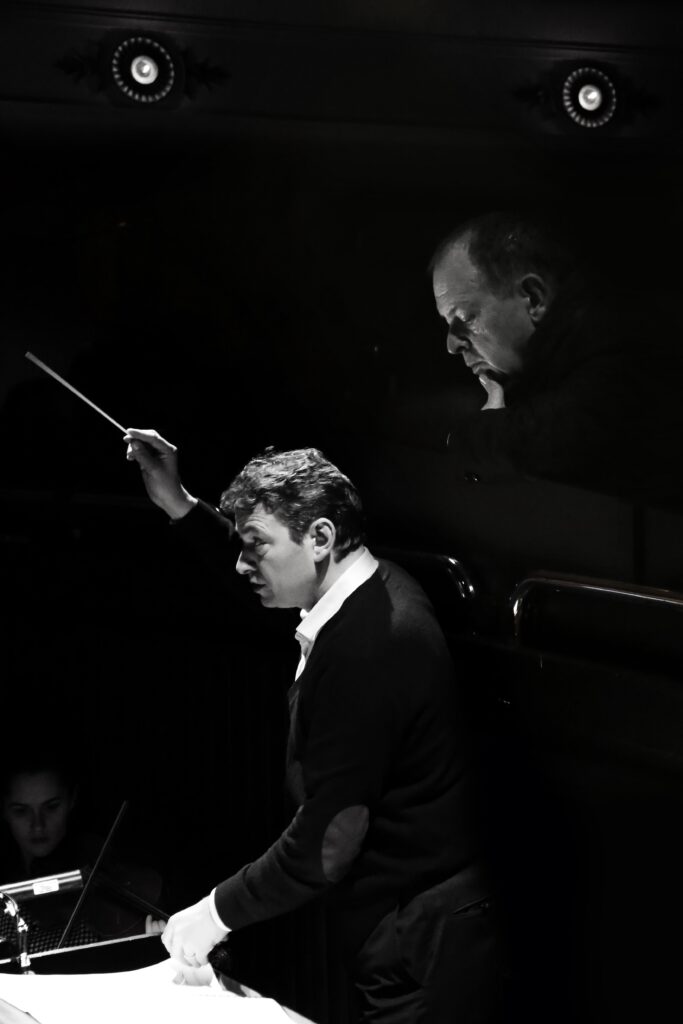Natalie Widmer, Dramaturg Opera and Concerts TOBS, spoke with Kaspar Zehnder about his choice of works for the farewell concerts in Solothurn and Biel.
Natalie Widmer: Throughout his life, George Enescu was torn between his biographical home in Romania and his artistic home in Paris. Is this dichotomy audible in his music? And what connects you with these two places?
Kaspar Zehnder: I think one senses not only Romania and Paris, but also Vienna, the sonic agglomerations of the post-Mahler era. Of course, Enescu’s music is primarily based on the shepherd songs and folk songs of his homeland and dresses them in the French aesthetics of the early 20th century. As a representative of contemporary art music, he thus goes back to the source of musical tradition, thus following a similar path to Béla Bartók, Zoltán Kodály or Leoš Janáček almost at the same time. The keyword source brings me to the second part of your question: I was already fascinated by the course of the Danube as a child (doesn’t “Journey to Tripiti” also more or less follow this river?), later I titled not only several concerts but entire festival programmes “Down the Danube”, and finally I also met my wife in Romania and am now there several times a year with my second family. Eastern Europe and its music have infected me like a virus for life. And Paris? Yes, it’s also a kind of mental illness: once you’ve lived there – I had the privilege of living there for two years as a student – you can never get away from it.
Manuel de Falla began composing his seductive “Nights in Spanish Gardens” in 1909, also in Paris. He wrote in the programme for the premiere: “The real reason this work was written is none other than to evoke places, moods and feelings.” Did he succeed? And if so, what does the piece evoke in you?
“Nights in Spanish Gardens” is undoubtedly one of the most sensual things ever composed. There are not only moods and sounds of places in this music, but also scents. In doing so, Manuel de Falla pursues the folk roots of his homeland less than Enescu, but rather gives free rein to his imagination as a sound colour mixer. In turn, his music triggers pure emotions in me as a listener and interpreter. But there is another association: in Spain, on a tour with the Prague Philharmonia in 2005, I felt for the first time that I had arrived professionally. The combination of great working conditions and fantastic concert halls with wonderful places and regions made me almost infinitely happy. In de Falla’s “Nights” I find this happiness again.
The demanding piano part is played by the Basque pianist Judith Jáuregui. How did this collaboration come about?
Judith, like many of the soloists I have the privilege of choosing myself, is one of those wonderful encounters where, both on stage and in conversation, you immediately sense a kinship and affection, a feeling of having known each other for a long time; musically, it not only works, but it also sparks, and hopefully this positive energy is transferred to the orchestra and the audience.
Antonín Dvořák’s 8th Symphony was supposed to be premiered on a concert tour through Russia. But this did not happen, and so the work was heard for the first time in a concert hall in Prague in 1890. Its printing in London eventually earned it the nickname “the English”. A thoroughly cosmopolitan work, one might think, even though it was composed in the Bohemian village of Vysoká at the composer’s summer residence. So are we dealing with a thoroughly Czech work?
You could say that. In it, Dvořák has extended the form set in the Classical and Romantic periods into the rhapsodic. The Eighth is a potpourri of Slavonic dances, a prime example of brilliant orchestration and a mirror of all human emotions, emotional, spiritual and even spiritual. I heard a recording of this symphony in endless loop as a boy, encountered it again as an assistant in Paris, and have conducted it more often than almost any other piece since. It was the real cornerstone of my love for Dvořák and Czech music. In Biel/Solothurn, Dieter Kaegi entrusted me with the direction of the opera “Rusalka” in the first year of our collaboration, for which I am still grateful today.
I will always be grateful to Biel and Solothurn, the fantastic audience, the wonderful TOBS team and the Biel Solothurn Symphony Orchestra.
